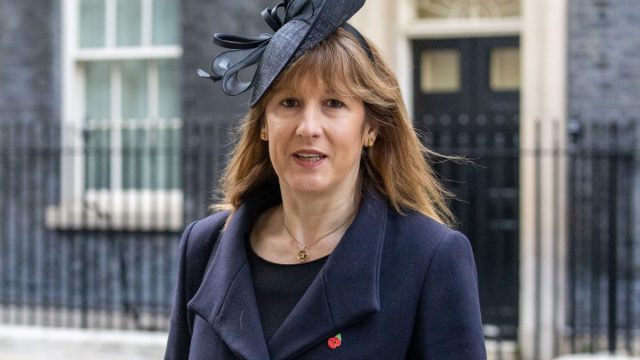The Home Office is considering offering migrants £100 a week to leave asylum hotels
Plans to give asylum seekers £100 a week to leave taxpayer-funded hotels will not be enough to cover housing costs and could put people at risk of homelessness and exploitation, experts have warned.
Home Office officials are reportedly proposing that migrants use the money to pay to live with a family or someone they know to accelerate the closure of asylum hotels.
The payments, which were criticised as ineffective and “gimmicky”, would be offered on top of the £49.18 a week asylum seekers receive to cover food and other living costs.
New FeatureIn ShortQuick Stories. Same trusted journalism.
The scheme, due to be trialled next year, is reportedly among options put to ministers to reduce the number of hotels, and any migrant would have to provide proof of appropriate accommodation, The Telegraph reported.
A spokesperson for the Home Office said there are no plans for this to happen. The department is considering ways to overhaul the immigration system as part of efforts to reduce “pull factors” for small boat crossings, but no decisions have yet been made on policy.
Charlotte Khan, head of advocacy and public affairs at refugee charity Care4Calais, told The i Paper that the payments being reported “wouldn’t be effective” in helping people afford to house asylum seekers.
She said asylum seekers are unable to live with family because of a lack of space in their homes, which would not be addressed by these low payments.
The incentive would amount to £433 a month, which is well below the average cost of a room in the private rented sector.
The average rent for a room in the UK is £753 a month, according to SpareRoom, a room renting platform.
In London, where many migrants are housed in hotels because they arrive via the country’s main airports, the average room costs £995 a month.
The cheapest region to rent a room is the North East, but it still costs an average of £549.
Out of 200 cities and towns with the highest number of rental listings, none have rooms that rent for below £433 on average.
The most affordable places on the list are Bootle (£465), Bradford (£470) and Burnley (£473).
After London, the most expensive places are Edinburgh (£887), St Albans in Hertfordshire (£847) and Esher in Surrey (£836).
Big cities attract more migrants but are not cheap to live in either. Renting a room costs £701 in Manchester, £623 in Birmingham and £546 in Liverpool.
Ms Khan warned that people housed in hotels who are “absolutely desperate to leave” due to poor conditions might be tempted to use the proposed scheme and “take a risk with that”.
“This will not cover rent and they would then be really at risk of exploitation from whoever they seek shelter with,” she added.
Ms Khan said such a scheme would need thorough checks or it is “risking people ending up on the street”.
She pointed to France as a cautionary tale. In the country, if the Government is unable to find asylum seekers accommodation, they are given cash payments that do not cover the market rental rate, which has fuelled homelessness, she added.
“Rather than this, which sounds quite gimmicky, we’d want the Government to be looking into proper housing solutions for people seeking asylum,” she added.
Asli Tatliadim, head of campaigns at charity Refugee Action, said: “The Government must stop wasting time and money on knee-jerk ideas for refugees and focus on fixing a national housing emergency that affects all people in our towns.
Your next read
“We need a long-term plan to invest in communities to build and buy more social homes, and properly fund councils to deliver housing for all people in need, including people seeking asylum.”
A Home Office spokesperson said: “The Government is furious about the number of illegal migrants in this country and in hotels.
“That is why we will close every single asylum hotel.”

